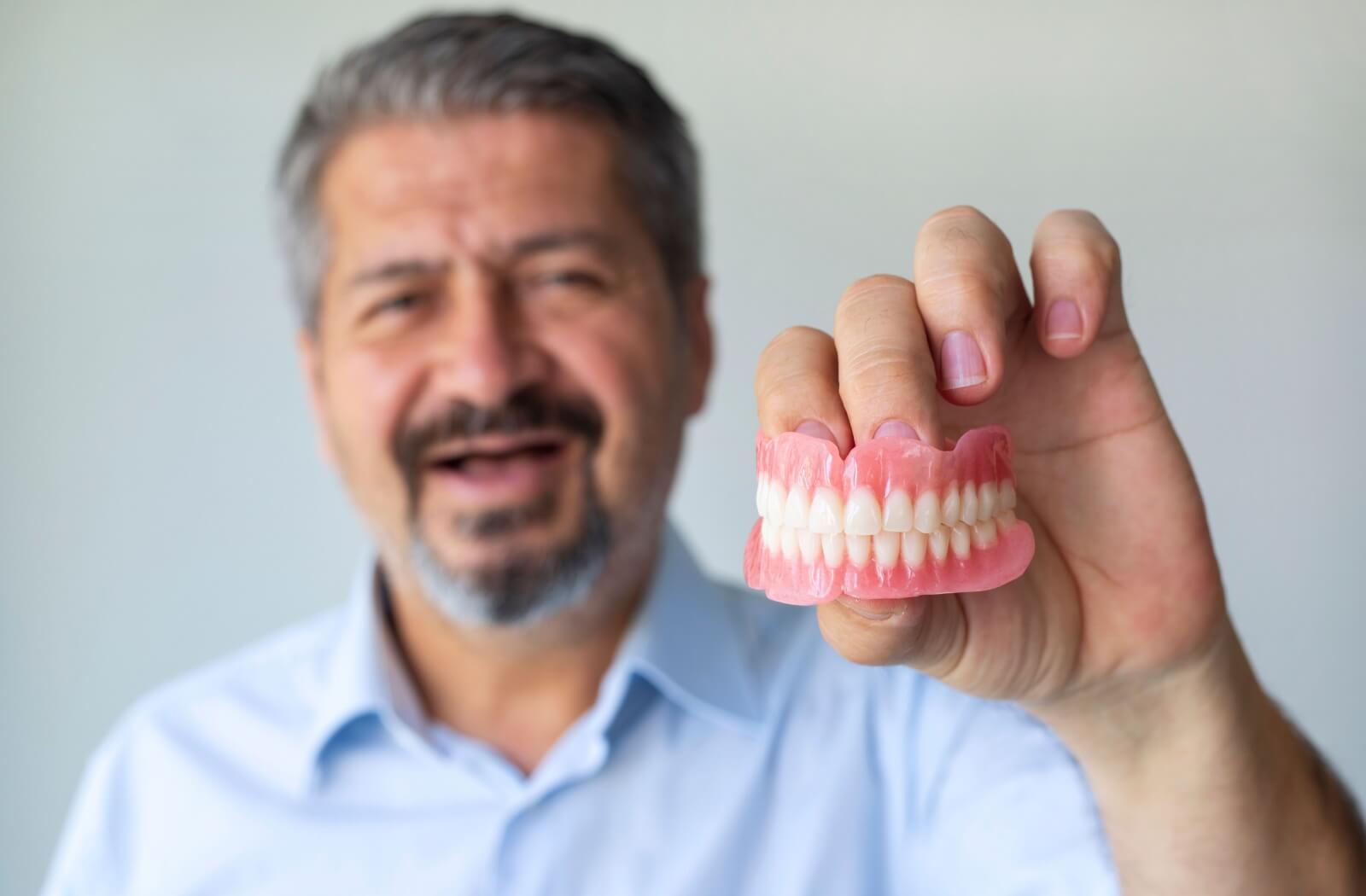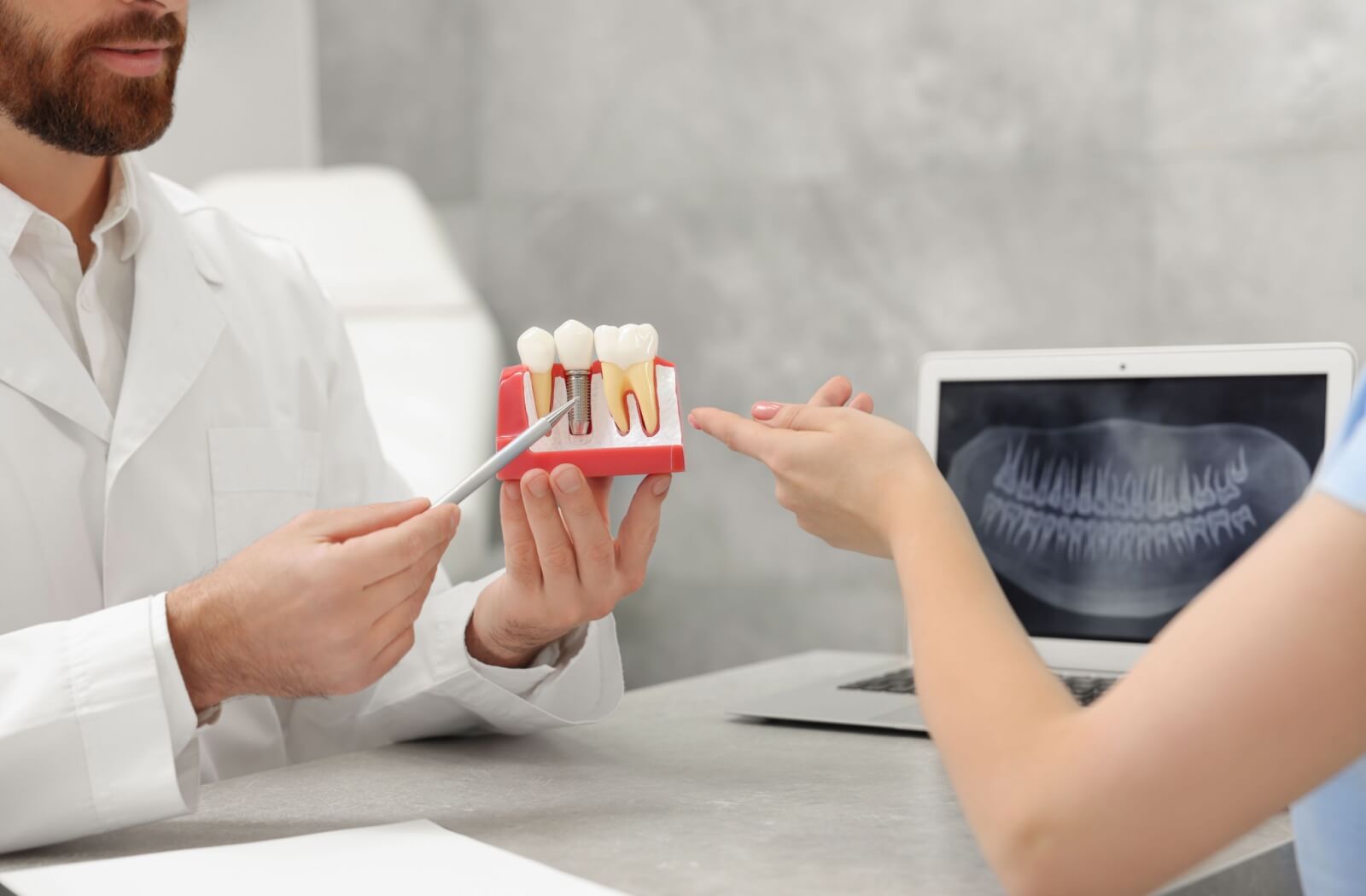
Tooth loss can have an impact on oral health, jaw functionality, and smile confidence. Thankfully, dentists offer several solutions that may help to effectively replace missing teeth, including dental implants, bridges, and dentures.
These restorative options can help to restore functionality and improve the smile's appearance, allowing individuals to regain their confidence. With advancements in dental technology, these treatments are now more comfortable, durable, and natural-looking, providing practical solutions for tooth replacement.
The Impacts of Missing Teeth
Missing teeth can affect much more than your smile—they influence your overall quality of life, oral health, and even your digestive system. Difficulty chewing can lead to poor nutrition, which impacts your overall well-being.
Oral Health Issues
When a tooth is missing, this can create various oral health problems, such as:
- Misalignment: Neighboring teeth may begin shifting or tilting into the empty space, causing bite issues and alignment troubles.
- Gum disease: Gaps left by missing teeth can become areas where food debris and bacteria accumulate, increasing the risk of gum disease and infection.
Aesthetic Concerns
Tooth loss can impact your appearance and speech, making it harder to communicate clearly:
- Appearance: A missing tooth can change your facial structure and lead to an uneven smile.
- Speech Impediments: Gaps in your teeth can make pronouncing certain words more difficult, causing speech problems.
Chewing & Digestion
Tooth loss can also impact your digestive process. Missing teeth can create issues, such as:
- Chewing difficulty: Without a full set of teeth, chewing becomes less efficient, which can lead to larger food particles entering your digestive tract.
- Dietary restrictions: You may be forced to avoid difficult foods to chew, limiting your intake of important nutrients.
Bone Loss & Facial Changes
Tooth loss can affect the jawbone deep beneath the gums. The jawbone can weaken over time where a tooth is missing, causing facial structure changes and possibly making people look older.
Some common bone-related concerns include:
- Bone resorption: When teeth are missing, the jawbone may begin to lose density and shrink over time. This can complicate future restorative procedures like dental implants.

3 Treatment Options to Replace Missing Teeth
Luckily, a range of solutions are available to address missing teeth. Working with a dentist will ensure you get the treatment that best fits your oral health, lifestyle, and budget.
1. Dental Implants
Dental implants are restorative dental solutions designed to mimic the natural structure of a tooth. A titanium post is surgically inserted into the jawbone and serves as a sturdy root for a custom-made crown.
Key benefits of dental impacts include:
- Long-lasting durability
- Prevents bone loss in the jaw
- Does not impact adjacent teeth
- Restores chewing efficiency
While dental implants are considered a good option for tooth restoration, not every patient is a good candidate. For example, patients with low bone density or chronic medical conditions may need further evaluation.
2. Dental Bridges
Dental bridges can be an effective option for those who may not want a surgical procedure. They use artificial teeth, and are either anchored by crowns on adjacent natural teeth or on dental implants next to the space left by your missing tooth.
Key benefits of dental bridges include:
- Non-surgical, fixed solution
- Prevents shifting and misalignment of surrounding teeth
- Quick and convenient process
Bridges can work well if you’re missing several teeth in a row and are looking for a reliable replacement solution that restores both function and appearance.
3. Dentures
Dentures remain a popular choice. Complete dentures replace all teeth in your upper or lower jaw, while partial dentures can fill the gaps created by a few missing teeth.
Key benefits of dentures include:
- Affordable solution for multiple missing teeth
- Noninvasive procedure
- Restores speaking and chewing ability
- Easy to remove and clean
Modern advancements have made dentures more comfortable and natural-looking than older models. Dentures can also be combined with dental implants for added stability.
Ways to Prevent Tooth Loss
Maintaining strong oral hygiene practices is key to keeping your teeth healthy and intact. Here’s some tips to help prevent tooth loss:
- Brush your teeth twice a day with fluoride toothpaste.
- Floss daily to clean areas your toothbrush can't reach.
- Maintain a balanced diet and limit sugary snacks.
- Wear a mouthguard during sports or high-risk activities to protect against injuries.
- Visit your dentist regularly for cleanings and exams to catch issues early.
Preventative habits can help to reduce the likelihood of tooth loss due to decay or gum disease. Regular brushing, flossing, and dental check-ups can help for early detection and treatment of issues before they worsen.
Find the Right Solution for You
Choosing the right for missing teeth depends on various factors, including the state of your oral health, your budget, and your lifestyle.
At Wildwood Family & Cosmetic Dentistry , we'll work together to find the option that suits you best. Are you ready to restore your smile and improve your oral health? Schedule a consultation today and explore your restorative dental options.